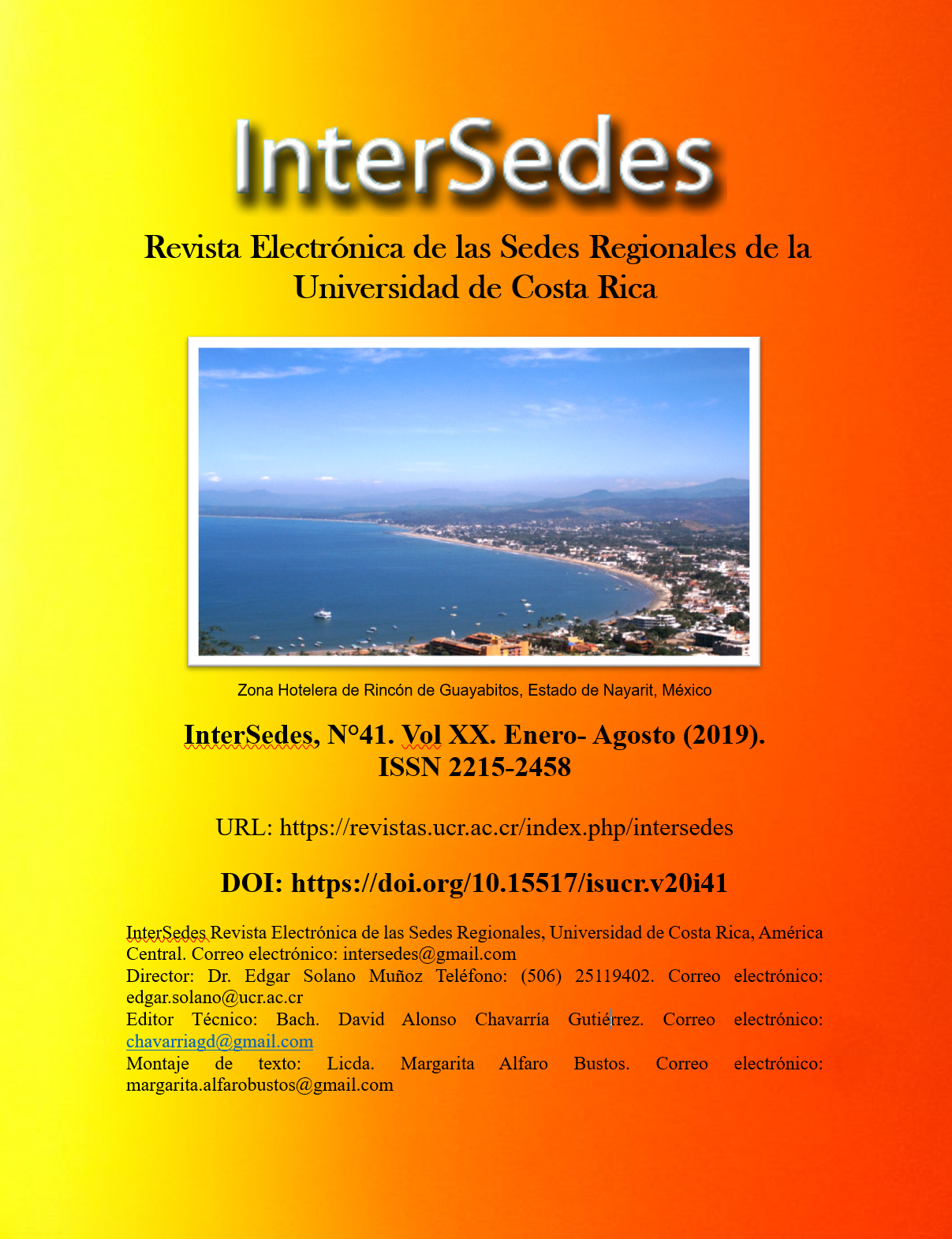Abstract
It is shown that both in the exterior and in the interior of the Gulf of Nicoya the sea surface temperature is increasing. Sea level, wind speed, evaporation, sensitive heat transfer, wave energy and coastal erosion are also increasing. The series of higher spatial resolution studied in the gulf indicate that salinity is increasing and that chlorophyll and dissolved oxygen decrease. All these variations are coherence within a framework of global warming. There will be greater stratification in the water column, and this implies a lower transfer of nutrients in to the surface waters. The variation in some oceanic variables implies a displacement of species, and possible invasion of others. The rise in sea level and the increase in wave energy indicate that there will be more coastal erosion, loss of marine habitats, displacement of coastal populations, salinization of wells, etc. The overall results obtained in this study, show a visible impact of global warming in the Gulf of Nicoya, and a projection of lost productivity in waters that are already, or will have, consequences for the fisheries of the zones.


